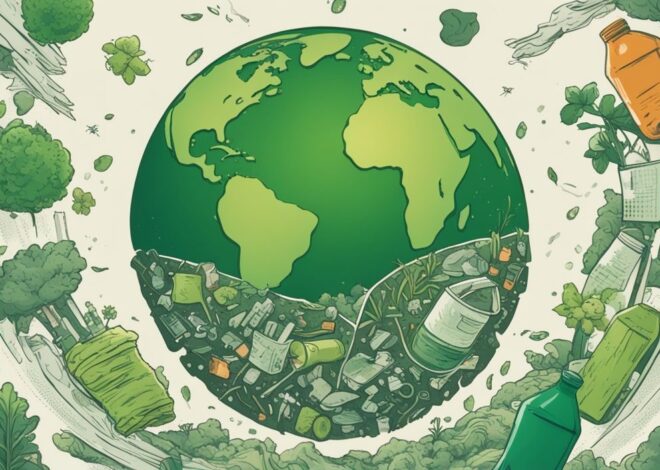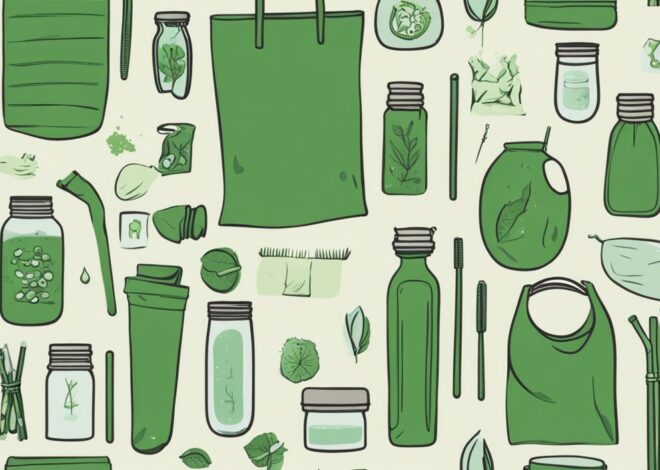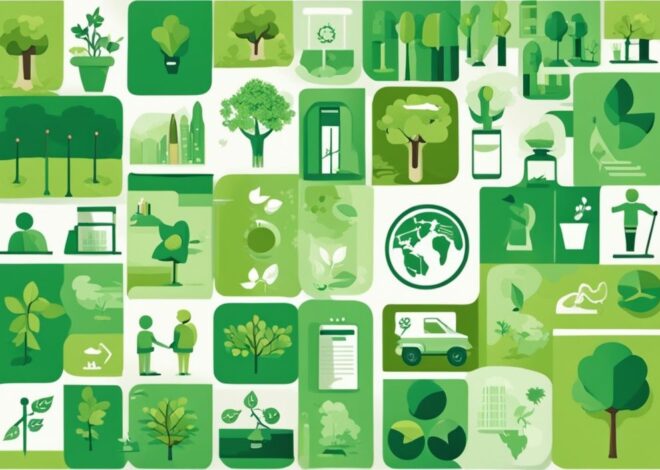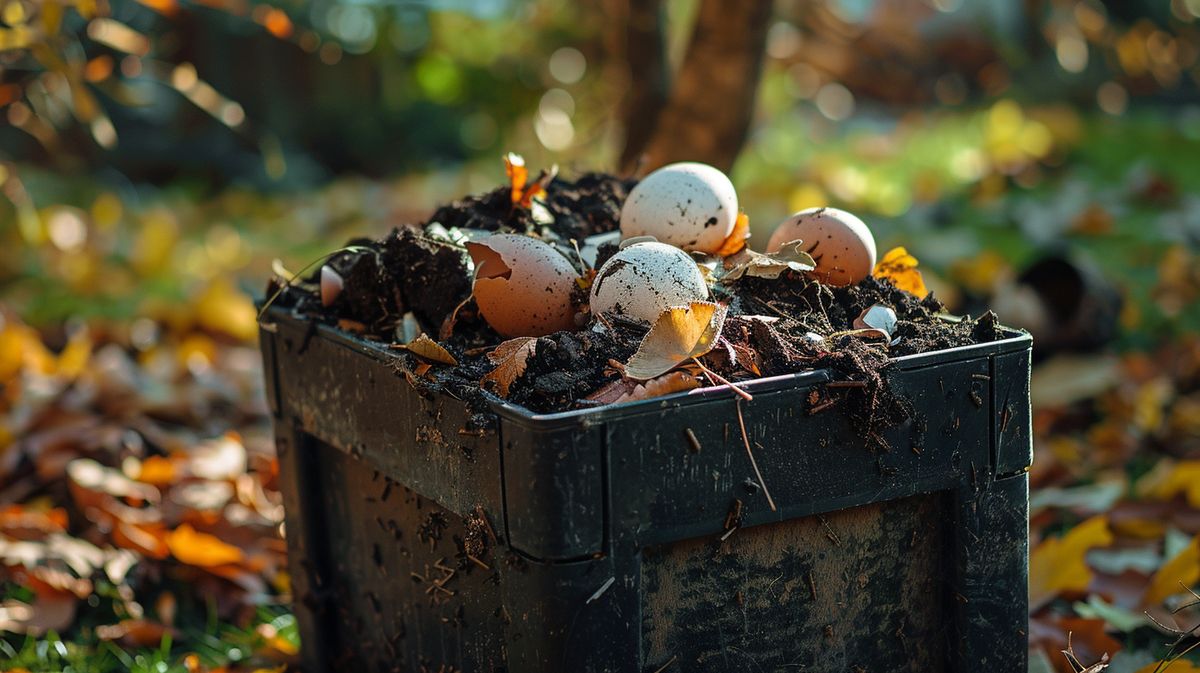
Discover the Green Benefits: Can Egg Cartons Be Composted?
Introduction to Composting Egg Cartons
Slide on those garden gloves, green-thumbs! Are you pondering “can egg cartons be composted?” Well, you’ve landed at the right place. You might chew your hat when you realize those pesky egg cartons cluttering your kitchen can potentially turn into your garden’s best friend. But hold on to your compost bin, not all cartons are created equal.
In this enlightening guide, we’ll sift through which egg cartons are prime for composting and how to turn them into luscious, soil-enriching goodies. Keep the breadcrumbs of suspense rolling as we deep dive into what could be your next green thumb secret weapon!
So slap on that eco-warrior cape! Stand out in your mission to reduce waste, while blessing your garden with nutritious compost. Ready to crack open this egg-citing adventure?
Introduction to Composting Egg Cartons
Ah, composting—a magical process where yesterday’s leftovers become tomorrow’s nutrient-packed soil. Now, many ponder, can egg cartons be composted? Well, it’s not a one-size-fits-all answer! Let’s crack open this topic and explore how different egg cartons fit into your eco-friendly routine.
By composting those humble egg cartons, you not only lighten the load on landfills but also supercharge your compost with essential nutrients. For more information on how to compost at home effectively, check out this resource from the EPA: https://www.epa.gov/recycle/composting-home. Imagine turning mundane waste into soil gold for your beloved veggie patch—sounds eggciting, right?
First, let’s break down the different types of egg cartons and their compostability. Cardboard and paperboard egg cartons are the real MVPs in the composting world. Toss these bad boys into your compost pile, and they’ll decompose blissfully, contributing valuable carbon to your mix. On the flip side, plastic and Styrofoam egg cartons are the party crashers. Sadly, they won’t break down and are best relegated to the recycling bin.
Knowing which type of egg carton you have ensures you toss it in the right place, making you a composting pro and an eco-warrior extraordinaire. This small act makes a big difference in the grand scheme of sustainability.
So, what’s in it for you? Well, effectively composting egg cartons turns your leftover waste into nutrient-dense soil, closing the loop in a beautiful cycle of life. Stick around to dive deeper into the wonderful world of egg cartons and their composting adventures.
Types of Egg Cartons
In this egg-citing exploration of egg carton varieties, let’s crack open the question: “Can egg cartons be composted?” Ah, the suspense is palpable! Read on to discover the composting potential of different egg carton materials and learn which ones to toss into the compost heap and which to steer clear of!
Cardboard Egg Cartons
Imagine a chorus of cardboard egg cartons cheerily chanting, “Add us to the compost!” These eco-friendly heroes, made from paper pulp, are not only 100% recyclable but also compostable. When you place them in your compost bin, they act like carbon-rich confetti, balancing the nutrients and spurring on microbial fiestas. The result? Your compost heap dances its way to decomposition faster than ever!
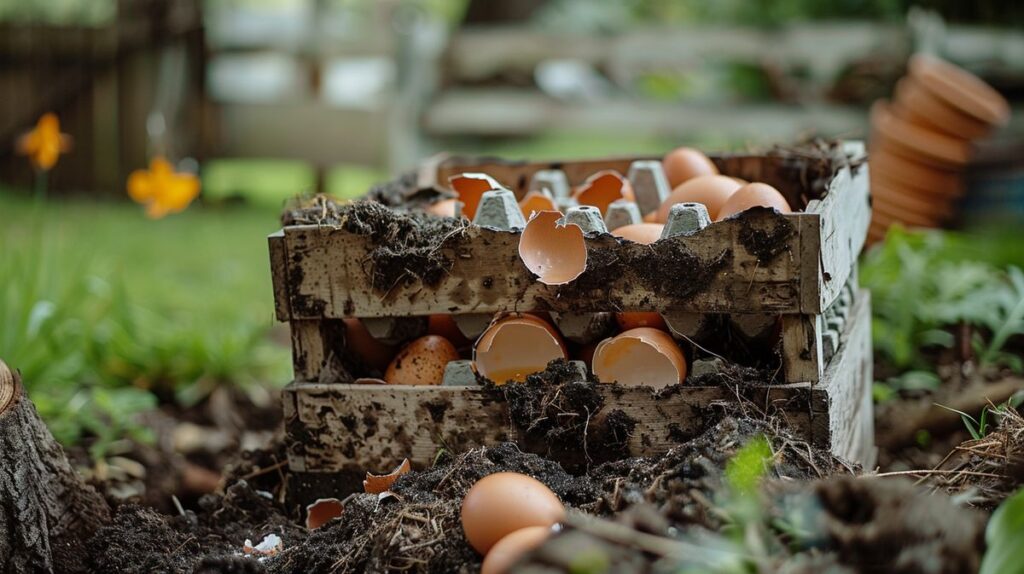
Paperboard Egg Cartons
Paperboard egg cartons strut their stuff with all the compostable flair of their cardboard cousins. Crafted from recycled paper materials, they too provide that magical carbon touch to your compost. Tossing them in helps maintain the nutrient orchestra, turning your compost pile into an earth-loving symphony. Talk about a piece of pulp fiction that’s both eco-friendly and efficient!
Plastic Egg Cartons
Plastic egg cartons, often made from PET (Polyethylene Terephthalate), might seem like the black sheep of the family. These non-compostable cartons are best buddies with your recycling bin, not your compost pile. Just make sure they’re squeaky clean and devoid of food residue before recycling. They might not decompose, but they can still play a part in reducing landfill waste if properly recycled.
Polystyrene (Styrofoam) Egg Cartons
Ah, the not-so-fabulous Styrofoam egg cartons. Polystyrene, better known as Styrofoam, stubbornly refuses to break down and is neither compostable nor recyclable. These environmental party poopers are best avoided. They’re like the unwanted guests that overstay their welcome, lingering in landfills for an eternity. If you must dispose of them, the trash bin is their final destination—but let’s aim for less of these pesky disruptors in our lives!
Composting Cardboard and Paperboard Egg Cartons
Benefits of Composting Cardboard and Paperboard Egg Cartons
Ever wondered if egg cartons can be composted? Surprise, surprise, they can, and it’s a win-win for your garden and the planet! These humble cartons, made from cardboard and paperboard, are packed with carbon, a vital ingredient for compost.
By tossing them into your compost heap, you’re treating microbial communities to a banquet, speedily breaking down organic matter into rich soil. Plus, you’re saving these little guys from a lonely fate in a landfill. Can we say eco-hero moment? Tossing these cartons into your compost is a simple yet impactful way to green up your routine. If you’re also wondering about the safety of other materials in your kitchen, you might want to learn more about the question, is silicone microwave safe.
How to Prepare Cardboard and Paperboard Egg Cartons for Composting
Ready to make your egg cartons compost-ready? Follow these whimsical tips and you’ll be a composting pro in no time:
- Snip and Shred: Cut the egg cartons into small pieces. It’s like giving microbes a buffet of bite-sized treats, perfect for quick munching and breaking down.
- Crush and Clean: Including eggshells too? Just make sure they’re washed and crushed. Those spotless shells keep pests away while adding a dash of calcium to your compost.
- Sticker Free Zone: Hunt down any rogue stickers or non-compostable bits and banish them. They’re like party crashers – unwanted and disruptive!
Decomposition Time for Cardboard and Paperboard Egg Cartons
Let’s talk time, shall we? Cardboard and paperboard egg cartons generally break down within 2-4 weeks, but it’s not a one-size-fits-all situation. Factors that affect this include:
- Moisture: Think of your compost like a damp sponge – not too wet, not too dry – just right for those eager microbes.
- Temperature: Hotter piles speed things up. Turning over the compost pile every so often heats everything up like a cozy blanket.
- Aeration: Give it some air! Regularly aerating introduces oxygen, keeping your aerobic microbes happily at work.
Balancing Carbon and Nitrogen in the Compost Pile
A well-balanced compost pile is like a well-cooked dish – it needs the right mix of ingredients! Cardboard and paperboard egg cartons are chock-full of carbon, essential for compost mixology. To cook up the perfect compost, mix them with nitrogen-rich delights like lawn clippings and veggie scraps.
Keeping this balance ensures your compost pile stays efficient and effective.
With these tips, you’ll be composting cardboard and paperboard egg cartons like a sustainability superstar, enriching your garden soil and cutting down on waste. Let’s turn trash into treasure!
Handling Contaminants on Egg Cartons
Ensuring your egg cartons are free from contaminants is crucial for composting success. Let’s dive into some common issues and how to tackle them, shall we?
Food Remnants on Egg Cartons
So, can egg cartons be composted? Well, yes, but only if they’re free of those pesky raw egg remnants! Imagine your compost attracting a party of unwanted pests—yikes! Thoroughly scrape off or wash away any eggy bits sticking around before tossing your cartons into the compost pile. Think of it as giving your egg cartons a mini spa day!
In hotter compost piles, a tiny bit of egg residue is usually okay. High temperatures act like nature’s sanitizer, breaking down the leftovers and keeping pests at bay. Just make sure your compost gets hot enough to handle the job without a hitch.
Stickers and Inks on Egg Cartons
Next up, stickers and inks! Before pondering “can egg cartons be composted,” make sure to meticulously peel off all those stubborn stickers. They can be deceivingly cute but are often made of non-compostable materials like plastic, which can mess up your compost masterpiece.
Most egg cartons sport food-safe inks that do a disappearing act in the compost, leaving no harmful chemicals behind. Double-check that the ink is food-grade, just to be on the safe side. However, beware of colored inks! They might contain heavy metals and other contaminants that could turn your compost into a not-so-fishy tale. Opt for plain, uncolored cartons whenever possible to keep your compost pristine.
By following these playful yet practical tips, your egg cartons can join the compost party without bringing any uninvited contaminants along. Happy composting!
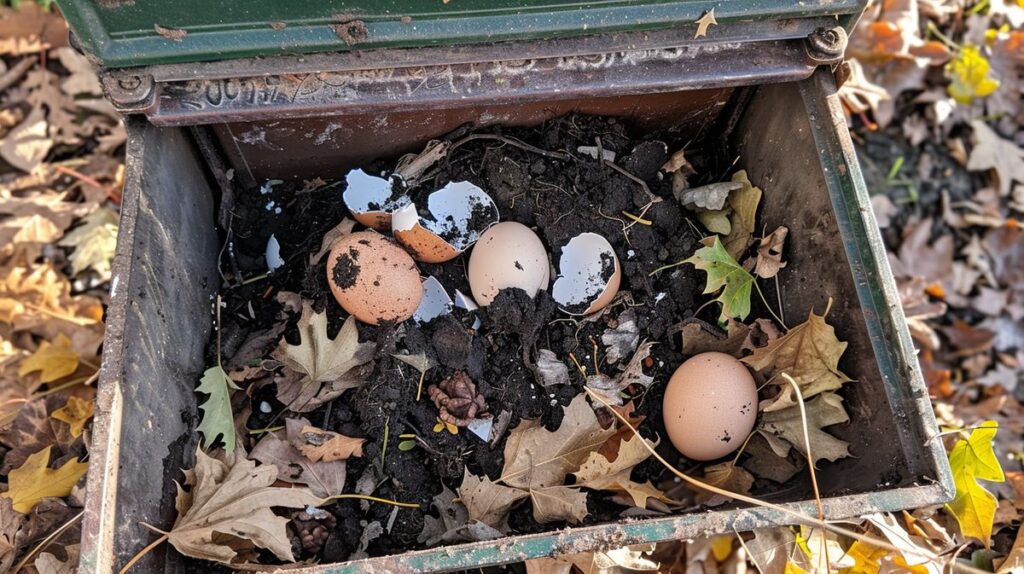
Alternatives to Home Composting
Wondering about alternatives to composting at home? Whether you’re asking yourself “can egg cartons be composted” or seeking other eco-friendly solutions, there are some fantastic options to explore! Let’s dive in, my fellow environmentally-conscious adventurers!
Local Recycling Facilities
Ah, the trusty local recycling facility—a beacon for all your cardboard and paperboard egg carton needs! Now, for those still pondering can egg cartons be composted, but don’t have a compost heap of your own, why not give recycling a whirl? Just ensure those egg cartons are as pristine as a spring morning. No crumbs, glue blobs, or eggy surprises, bitte! By sorting and cleaning your materials, you’re a hero in the eyes of your local recycling center, increasing the odds your efforts won’t go to waste. Remember—cleanliness is not just next to godliness; it’s next to recyclability!
Community Composting Programs
If you lack a home composting setup but still want to play a role in the great green game, community composting programs are your ticket! It’s not just about discovering can egg cartons be composted—it’s about joining forces with like-minded eco-warriors. Many of these community setups are more than happy to take your egg cartons and transform them into rich, fertile compost.
Check out your local drop-off sites or even sign up for a pick-up service if you’re feeling fancy! Besides cutting down on landfill waste, these programs lead to better urban farming practices and superb community gardening. Plus, it’s a wonderful way to bond with neighbors over a shared love for Mother Earth. Imagine the joy of knowing you’re part of something much bigger while helping your city thrive—now that’s what I call compost camaraderie!
So, can egg cartons be composted? Absolutely! Whether you take them to a recycling facility or deliver them to a community composting program, you’re making a difference. Happy composting, my friends!
Additional Uses for Cardboard Egg Cartons
Seed Trays in Gardening
- Eco-Friendly Seed Starters: Imagine this: Cardboard egg cartons aren’t just for carrying eggs! These humble, biodegradable heroes make perfect seed trays. By using them, you not only reduce waste but also become an eco-warrior supporting sustainable gardening practices. How egg-citing is that?
- Easy Germination and Transplantation: Let’s get those seeds sprouting! Each compartment of the egg carton provides a cozy nook for individual seeds to germinate. This setup isn’t just orderly; it’s a dream for your future garden. You can easily monitor and pamper each budding plant like the proud plant parent you are.
- Simple Transplant Process: When your seedlings are ready to leave the nest (or egg carton), you can plant the whole cell directly into the soil. No root disruption means happy roots and, ultimately, flourishing plants. It’s like moving to a new home without packing a single box—convenience at its finest!
- Composting Benefits: Here comes the magic! Post-planting, the remaining egg carton material slowly decomposes, enriching your soil with extra nutrients. It’s like feeding your plants a vitamin-packed snack. They’ll thrive, and you’ll feel like the composting wizard of your garden.
- Effective Water Management: Watering woes be gone! Cardboard egg cartons excel at retaining moisture, ensuring your seeds stay hydrated when it counts the most. This moisture-holding power supports steady, healthy seedling growth, transforming your once-parched garden into a lush paradise.
Conclusion
Prepare to embark on an egg-citing composting adventure! Imagine, instead of these humble egg cartons ending up in the dreaded trash, they rise to the occasion, transforming into rich, nutritious compost that your garden will adore. But the question remains, can egg cartons be composted? Spoiler alert: it depends on the type of egg carton you crack open.
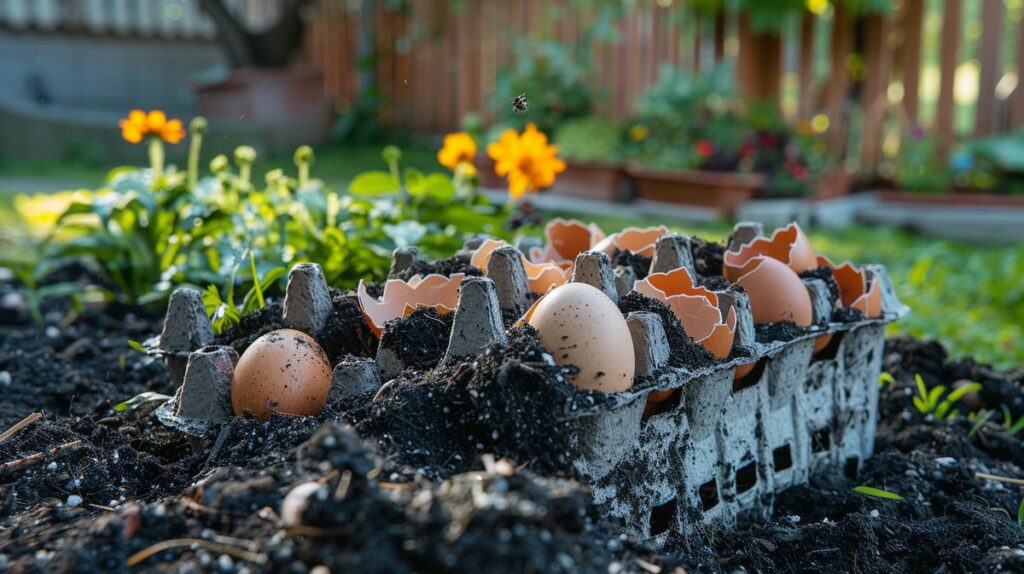
First off, cardboard and paperboard egg cartons are the composting champions! Crafted from paper pulp and recycled materials, these cartons are just begging to be part of your compost heap. When they do, they bring a hearty serving of carbon to the mix, fueling the essential microbes that make your compost thrive. To give them a little turbo boost, chop them into smaller pieces and bid adieu to any pesky stickers clinging onto them.
Now, let’s waddle over to the not-so-compostable contenders: plastic and polystyrene egg cartons. Plastic egg cartons—typically made from PET (Polyethylene Terephthalate)—can be recycled, but they must be free of food remnants. Polystyrene egg cartons, or Styrofoam, on the other hand, are composting party poopers and belong straight in the trash, where they must sadly face their fate.
But wait, there’s more! Achieving the perfect compost isn’t just about tossing in those egg cartons. Balance is key. Make sure to pair your carbon-rich materials (like those awesome cardboard egg cartons) with nitrogen-rich goodies like grass clippings and veggie scraps. Getting this balance right speeds up decomposition and results in compost that’s a pure treat for your plants.
When composting isn’t an option, never fear! Recycling facilities, many of which welcome clean and empty egg cartons, come to the rescue. Even better, community composting programs often have drop-off points or pick-up services for your green waste, keeping things convenient.
Oh, and don’t forget about the fun, creative side of things! Cardboard egg cartons can moonlight as seed trays, offering an eco-friendly, biodegradable cradle for your seedlings. Once they grow up a bit, they can be transplanted right into your garden—easy peasy!
In a nutshell, understanding which egg cartons can be composted and using the right techniques makes you a hero for the environment. To truly grasp why zero waste is important, it’s essential to incorporate sustainable practices like these into everyday life. By composting or recycling responsibly, you help reduce landfill waste and boost soil health with nutrient-rich compost. It’s a win-win, and your garden will thank you with a vibrant, healthy glow!
Frequently Asked Questions (FAQ)
How long does it take for cardboard egg cartons to decompose in a compost pile?
Ah, the delightful journey of cardboard egg cartons in a compost pile! These eco-friendly cradles for your eggs typically break down in about 2-4 weeks. It’s like their farewell performance! The speed of this magical transformation depends on the trio of compost pile divas: moisture, temperature, and air circulation. For those wondering about eco-friendly products, you might ask, is Blueland non toxic? Keep these elements in harmony, and watch your egg cartons swiftly return to the earth.
Can plastic egg cartons be composted?
Alas, plastic egg cartons are the Cinderella who doesn’t get to go to the compost ball. They simply aren’t compostable. But don’t fret, you can still be an eco-champion by recycling them, provided they’re squeaky clean and devoid of any food residue. So, give your plastic cartons a rinse and send them off to be reincarnated.
Are printed egg cartons safe to compost?
Generally, yes! Most printed egg cartons are safe for composting, as long as the ink is food-safe. But here’s the kicker: be cautious of colored inks, as they might harbor pesky heavy metal contaminants. It’s always safer to err on the side of plain or black-printed cartons, ensuring your compost stays pure and wholesome.
What should I do with Styrofoam egg cartons?
Oh dear, Styrofoam egg cartons are the black sheep of the egg carton family when it comes to composting. They cannot be composted or even recycled and must regrettably be sent to the trash. However, consider switching to alternatives like cardboard or paperboard egg cartons. They’re the compostable superstars you’ve been looking for!
